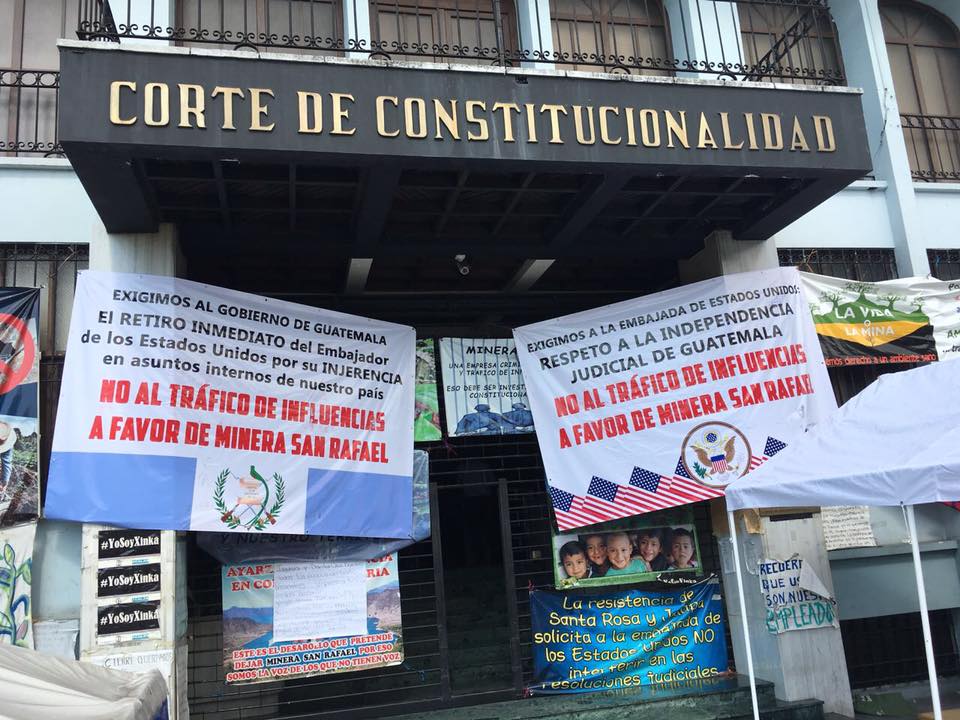On June 11, over fifty Guatemalan and international organizations sent a letter to the U.S. Embassy in Guatemala raising deep concern about Embassy interference and threats of international lawsuits that they believe are putting undue pressure on the country’s Constitutional Court and pose further risk to residents demonstrating against the project. A decision is currently pending from the court concerning the current suspension of Tahoe Resources’ Escobal silver mine.
Notably, on May 21, the U.S. Embassy in Guatemala released a public statement highlighting the importance of natural resource extraction and calling on the Constitutional Court to “issue without delay” the final resolution on Tahoe’s case. In response, the civil society letter to the Embassy states: “Given the overwhelming opposition to mining throughout Guatemala and the pattern of conflict and violence associated with Tahoe’s project in particular, the U.S. Embassy statement is reprehensible. The U.S. Embassy’s effort to interfere with the independence of the Guatemalan judiciary is out of place and puts environmental defenders and indigenous leaders who are legitimately and peacefully opposing mining projects at greater risk of repression.”
The letter raises further alarm over the threat of international arbitration against Guatemala. On May 8, 2018, the Washington-based International Law Institute submitted a brief to the Guatemalan Constitutional Court flagging the risk of international arbitration should the court not permit Tahoe Resources to continue operating its conflict-plagued mine. The brief was filed by Guatemalan lawyers whose firm represents Tahoe Resources’ wholly-owned subsidiary in Guatemala, Minera San Rafael. Shortly after, on May 16, Nevada-based Kappes, Cassiday & Associates (KCA) filed notice of its intent to sue the Guatemalan government under the Dominican Republic–Central American Free Trade Agreement (CAFTA-DR) for at least US$300 million. KCA bases its claim on the ongoing suspension of its Tambor gold mine for lack of prior consultation with affected communities, among other things.
Calling on U.S. officials to refrain from further interference, the civil society letter concludes: “Such interference, through U.S. government lobby and threats of costly international lawsuits against the Guatemalan government, only serve to escalate tensions and cast doubt on judicial independence in Guatemala.”
The recent statement from the U.S. Embassy is just one example in a string of public efforts from U.S. representatives that have sought favour for Tahoe Resources in Guatemala while its mine has been stalled. Tahoe Resources’ lobby efforts in Canada and the U.S., and documented responses to date are outlined in this backgrounder.
